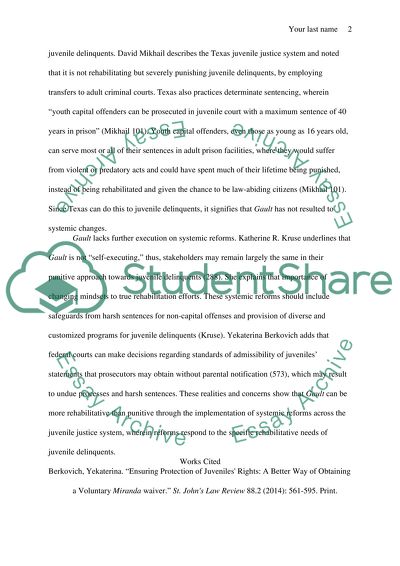Juvenile Court Process Essay Example | Topics and Well Written Essays - 500 words. Retrieved from https://studentshare.org/sociology/1689705-juvenile-court-process
Juvenile Court Process Essay Example | Topics and Well Written Essays - 500 Words. https://studentshare.org/sociology/1689705-juvenile-court-process.


